- Details
-
Category: Media Releases
-
Published: Thursday, 31 May 2018 13:52
PRESS RELEASE
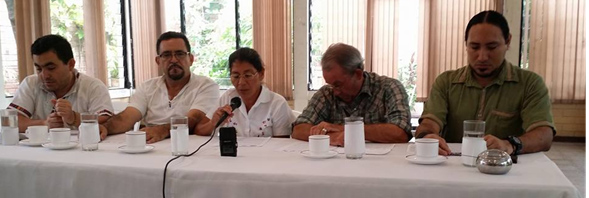
San Salvador, May 31st 2018. Last week the Environment and Climate Change Committee of the Legislative Assembly moved to archive all files and petitions related metallic mining in El Salvador, declaring that the "subject is closed" because “there is already a Law that permanently prohibits it”.
Organizations that for years have led the antimining struggle in El Salvador such ADES, CRIPDES, UNES, ARPAS and UCA welcome this action because before the new legislature was installed, we warned the country about the dangers of reverting of this Law and we demanded that the newly elected legislators maintain the prohibition of mining.
Read more ...
- Details
-
Category: Media Releases
-
Published: Tuesday, 08 May 2018 15:17
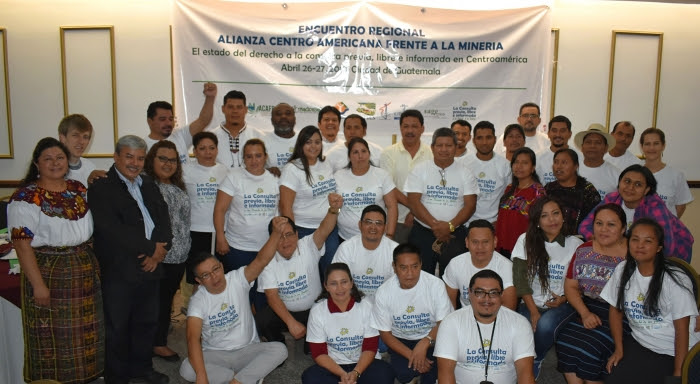
Guatemala City, April 26-27, 2018.
We, the representatives of social movements, environmental organizations, human rights defenders, women's groups, indigenous peoples participating in the II Regional Meeting of the Central American Alliance Against Mining -ACAFREMIN-, met in Guatemala City on April 26 and 27 of this year, in order to analyze "the state of the right to prior, free and informed consultation in order to obtain people’s consent”.
During the meeting we have analyzed the legal foundations of prior, free and informed consultation, as a right that communities and indigenous and tribal people have, to either grant or deny their consent to extractive projects in their territories.
Read more ...
- Details
-
Category: Media Releases
-
Published: Sunday, 06 May 2018 18:39
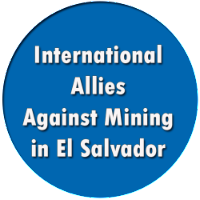
April 4th, 2018
A year since El Salvador's legislature unanimously approved a law prohibiting all metal mining activities in the country, Salvadoran organizations including the National Roundtable Against Metallic Mining are reaffirming their commitment to ensure the small Central American country continues to be an example to the world in the defence of precious water supplies. They are also warning of the risk that the law could be repealed.
Read more ...
- Details
-
Category: Media Releases
-
Published: Thursday, 08 February 2018 00:41
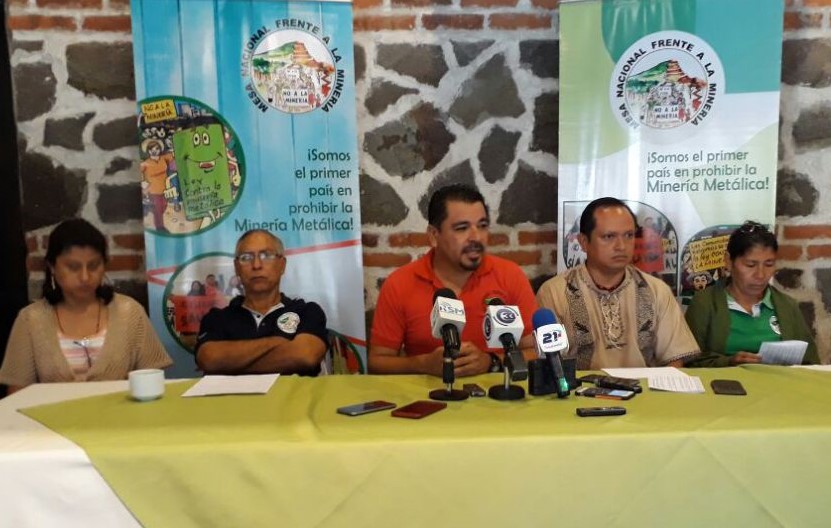
PRESS RELEASE: National Roundtable Against Metallic Mining
For many years El Salvador has faced serious environmental degradation provoked in its majority by industrial processes of big corporations. In 2018 the panorama would have been even worse, if El Salvador had given into the pretensions of transnational mining companies to exploit gold and silver in the northern part of the country.
Given the environmental conditions that our country is facing and the current electoral scenario not all the political parties have presented a legislative program for the population, despite the fact that the legislative campaign has already began. In fact, politicians have remained silent asking for the citizen's vote while failing to commit to social, economic, public finances, and transparency issues.
Read more ...
- Details
-
Category: Media Releases
-
Published: Thursday, 01 February 2018 07:07
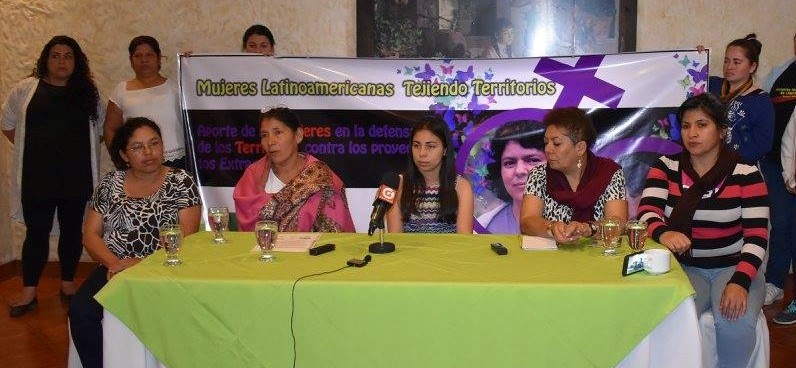
PRESS RELEASE
WOMEN OF GUATEMALA, HONDURAS AND EL SALVADOR DENOUNCE THE IMPACTS OF THE EXTRACTIVE INDUSTRIES
The women of the Peaceful Resistance La Puya and the Municipality of Mataquescuintla, in Guatemala; RENACAMIH and COPINH, Honduras, ADES Santa Marta in El Salvador, and the Latin American Network of Women Defenders of Social and Environmental Rights express our concerns about the effects of extractive industries in the region.
Read more ...
- Details
-
Category: Media Releases
-
Published: Friday, 21 July 2017 16:51

Social movements say: no to the privatization of water in El Salvador
We want to express our deep rejection of the "Integral Water Law" proposal presented in mid-June by the National Association of Private Enterprise (ANEP) before the Legislative Assembly and supported by ARENA and other right-wing parties.
We consider that its contents are intended to implement a model of privatized management, where the priority for the use of water will be commercial above the human rights of people and nature. This proposal creates an autonomous authority where ANEP decides the fate of water in the country; it eliminates watershed based management and thus it virtually excludes community participation. The proposal eliminates the priority of supplying water the to the population, establishing a single permit for public and private users, with equal terms for all users and charging equal fees or fees for the use of water to all users regardless of whether for domestic or commercial consumption.
Read more ...






